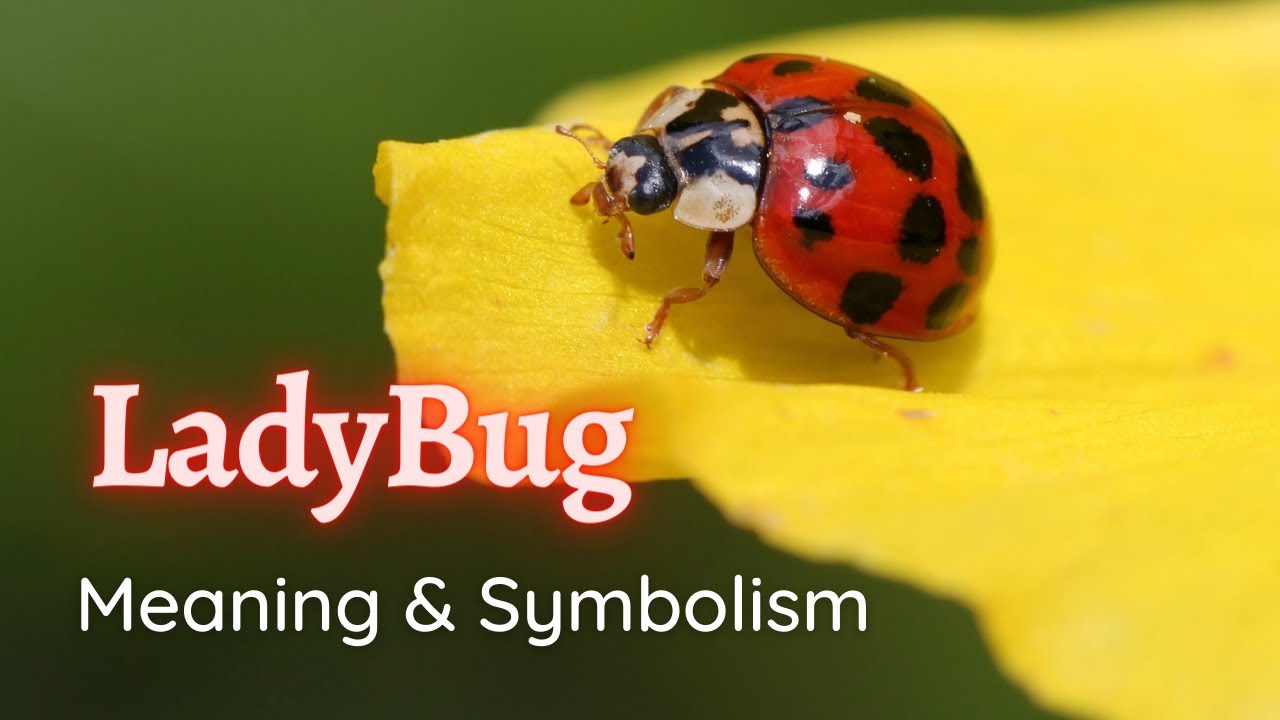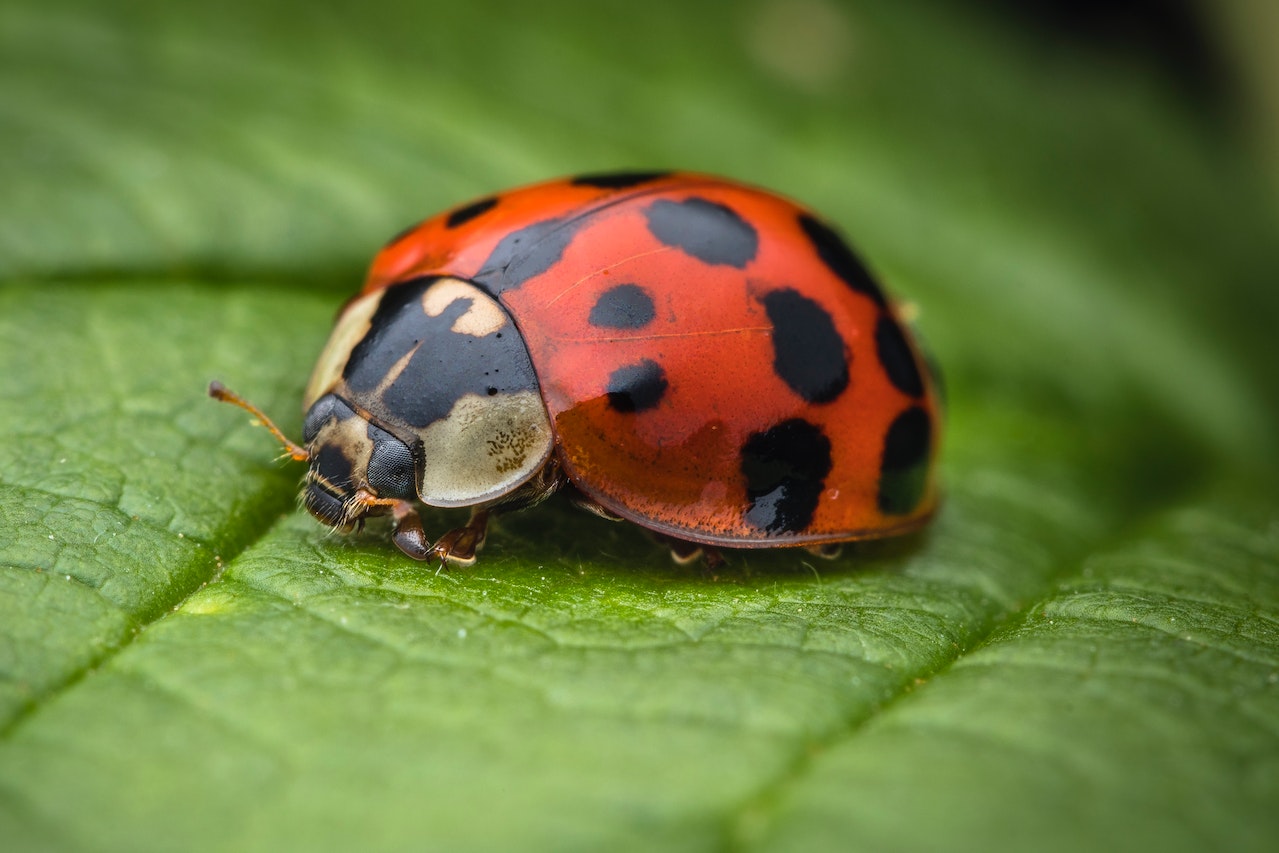The Meaning Of Ladybugs - Understanding Its Spiritual Significance
Ladybugs, also known as ladybirds, are small, colorful beetles that are often associated with good luck and positivity. In this article, we will explore the meaning of ladybugs and the various ways in which they have been interpreted throughout different cultures and traditions.
Author:Suleman ShahReviewer:Han JuMay 27, 2023770 Shares384.7K Views

Ladybugs, also known as ladybirds, are small, colorful beetles that are often associated with good luck and positivity. These tiny creatures have been celebrated throughout historyfor their beauty and the symbolism they represent.
In this article, we will explore the meaning of ladybugsand the various ways in which they have been interpreted throughout different cultures and traditions.
The Spiritual Significance And The Meaning Of Ladybugs
In many cultures, ladybugs are seen as a symbol of good luck and protection. They are believed to bring blessings and positive energy into our lives and are often considered to be messengers from the divine realm.
Ladybugs are associated with love, abundance, and prosperity, and are said to bring these blessings into our lives when they appear.
In many cultures, ladybugs are seen as a symbol of renewal and regeneration. They are associated with the changing seasons and are often considered to be harbingers of spring.
Ladybugs are also associated with the concept of transformation, as they go through a metamorphosis from their larval form to their adult form. They remind us that change is a natural and necessary part of lifeand that there is always the potential for growth and new beginnings.
Ladybugs As A Reminder To Embrace Joy And Playfulness
Ladybugs are often seen as a reminder to embrace joy and playfulness in our lives. They are small and lively creatures that bring a sense of lightness and fun wherever they go.
When we encounter ladybugs, we are reminded to take a break from the seriousness of life and to enjoy the simple pleasures of the moment. They encourage us to let go of our worries and stresses and to live in the present moment with a sense of wonder and curiosity.
Ladybugs As A Symbol Of Love And Romance
In some cultures, ladybugs are seen as a symbol of love and romance. They are often associated with the goddess of love and beauty and are said to bring good fortune to those seeking love or looking to strengthen their relationships.
Ladybugs are also believed to have the power to heal broken hearts and restore harmony in relationships.
Ladybugs As A Symbol Of Protection And Safety
Ladybugs are often seen as a symbol of protection and safety. They are natural predators of pests and are often used in gardening and agriculture to control aphids and other harmful insects.
Ladybugs are also believed to have the power to ward off negative energies and protect us from harm. When we see ladybugs, we are reminded that we are not alone and that we are always protected and supported by the universe.
Ladybugs As A Symbol Of Abundance And Prosperity
Ladybugs are associated with abundance and prosperity in many cultures. They are often seen as a sign of good luck and are believed to bring blessings and positive energy into our lives.
Ladybugs are also associated with the concept of fertility and are believed to bring fertility and prosperity to crops and gardens. When we encounter ladybugs, we are reminded of the abundance that surrounds us and the infinite possibilities that are available to us.
Ladybugs And Their Colors
Ladybugs are known for their vibrant colors, which vary depending on the species. The most common ladybug colors are red and black, but there are also ladybugs that are yellow, orange, pink, and even white. The colors of ladybugs are not just for show, however; they also have symbolic meanings that have been recognized in many cultures around the world.
Red And Black Ladybugs - Significance And Symbolism
Red and black ladybugs are the most well-known and recognizable species of ladybugs. In many cultures, they are considered to be a symbol of good luck and prosperity.
The red color of the ladybug is associated with the energy of life and vitality, while the black color represents protection and grounding. Together, the colors of the red and black ladybug symbolize balance and harmony.
Yellow And Orange Ladybugs - What Do They Mean?
Yellow and orange ladybugs are less common than red and black ladybugs, but they are still highly symbolic. In many cultures, yellow and orange ladybugs are considered to be a sign of happiness and joy.
These ladybugs are associated with the energy of the sun and are believed to bring warmth and light into our lives. The yellow and orange colors also represent creativity and inspiration, making these ladybugs a popular choice for artists and writers.
Pink Ladybugs - The Symbol Of Love And Affection
Pink ladybugs are a rare species of ladybug that are often associated with love and affection. The pink color is associated with the energy of love and compassion, and these ladybugs are believed to bring positive energy and healing to relationships.
Pink ladybugs are also said to have the power to attract love and romance into our lives.
White Ladybugs - The Sign Of Purity And Innocence
White ladybugs are the rarest species of ladybugs and are considered to be a symbol of purity and innocence. The white color represents clarity and purity of thought, and these ladybugs are believed to bring clarity and understanding to our lives.
White ladybugs are also associated with new beginnings and fresh starts, making them a popular symbol for those embarking on a new journey or chapter in their lives.
Other Ladybug Colors And Their Meanings
In addition to the more common ladybug colors, there are also ladybugs that are pinkish-red, orange-red, and even black with red spots. Each of these colors has its own unique symbolism and meaning.
Pinkish-red ladybugs are associated with the energy of love and romance, while orange-red ladybugs are a symbol of creativity and inspiration.
Black ladybugs with red spots are believed to bring protection and grounding, while red ladybugs with black spots symbolize balance and harmony. No matter what color they are, ladybugs are a powerful symbol of positivity, protection, and good fortune.
Ladybugs In Folklore And Mythology
Ladybugs have been a popular symbol in folklore and mythology for centuries. In many cultures, they are associated with good luck, protection, and prosperity.
The exact symbolism and mythology surrounding ladybugs vary depending on the culture, but the overall theme of positive energy and protection remains consistent.

The Meaning of Seeing Ladybugs | Symbolisms and Spiritual Meanings of LADYBUGS🐞🐞
Ladybugs As A Symbol Of Protection In European Folklore
In European folklore, ladybugs are believed to bring protection and good luck. It was believed that if a ladybug landed on a person, they would be protected from harm and misfortune.
In some cultures, it was also believed that the number of spots on a ladybug's back could indicate the number of months of good luck that the person would have.
Ladybugs As A Symbol Of Love In Asian Folklore
In many Asian cultures, ladybugs are associated with love and romance. It is believed that if a ladybug lands on a person, they will soon find true love. In some cultures, it is also believed that the number of spots on a ladybug's back can indicate the number of suitors that the person will have.
Ladybugs In Native American Folklore
In Native American folklore, ladybugs are associated with protection and healing. It is believed that if a ladybug lands on a person, they will be protected from harm and illness. Ladybugs are also believed to have the power to heal physical and emotional wounds.
Ladybugs In Christian Mythology
In Christian mythology, ladybugs are associated with the Virgin Mary. According to legend, the ladybug was sent by the Virgin Mary to protect crops from pests. The red color of the ladybug's wings was said to represent the blood of Christ, while the black spots on its wings represented Mary's sorrow.
Ladybugs In Contemporary Culture
In modern times, ladybugs are still a popular symbol of good luck and protection. They are often used in artwork, jewelry, and clothing, and many people still believe that ladybugs bring positive energy and protection. Ladybugs are also often used in advertising and branding as a symbol of positivity and happiness.
Ladybugs And Superstitions
Despite their positive symbolism, ladybugs have also been associated with superstitions throughout history. In some cultures, it was believed that killing a ladybug would bring bad luck. In other cultures, it was believed that if a ladybug flew into a person's house, it was a sign of good luck.
While these superstitions may not hold much weight in modern times, they still serve as a reminder of the powerful symbolism that ladybugs hold in our culture and history.
Ladybugs In Modern Culture
Ladybugs have a rich cultural and symbolic history that has transcended time and geography. Today, ladybugs continue to captivate and inspire people around the world in a variety of ways. From children's books to sustainable agriculture, ladybugs have found a place in modern culture that continues to grow and evolve.
Ladybugs In Children's Literature
Ladybugs are a popular subject in children's literature. They are often depicted as cute and friendly insects that children can relate to and admire.
Some of the most well-known ladybug characters in children's books include Ladybug Girl, from the popular book series by David Soman and Jacky Davis, and The Grouchy Ladybug, by Eric Carle.
Ladybugs In Art And Design
Ladybugs are a common theme in art and design. They are often used as a symbol of good luck, positivity, and creativity. Ladybug motifs can be found on everything from clothing to home decor to tattoo designs.
Ladybugs In Sustainable Agriculture
Ladybugs are also highly valued in sustainable agriculture. They are natural predators of aphids and other garden pests, making them an important tool for organic farmers and gardeners. Ladybugs are often used as a natural form of pest control, reducing the need for harmful pesticides.
Ladybugs In Medical Research
Recent research has also shown that ladybugs may have potential medical benefits. Ladybug hemolymph, the fluid that circulates through their body, contains antimicrobial peptides that have been shown to kill bacteria and other microorganisms. This has led to research into potential medical applications for ladybug peptides in the treatment of infections.
Ladybugs In Entertainment
Ladybugs have also found their way into popular culture through entertainment. In the 1992 film "Ladybugs," starring Rodney Dangerfield, a young boy disguises himself as a girl to play on a girls' soccer team, and his team's lucky charm is a ladybug. Ladybugs have also appeared in popular TV shows such as "The X-Files" and "Doctor Who."
Ladybugs In Environmental Conservation
Ladybugs are also a symbol of environmental conservation. The loss of habitat and the use of pesticides has led to a decline in ladybug populations in some areas. As a result, conservation efforts have been initiated to protect ladybugs and their habitats.
Some organizations have even adopted the ladybug as their mascot to raise awareness about the importance of environmental conservation.
Ladybugs As A Source Of Inspiration
In addition to their practical uses and cultural significance, ladybugs continue to inspire people in countless ways. Their bright colors and distinctive spots make them a beloved symbol of beauty and creativity.
Ladybugs represent positivity, good luck, and the promise of a brighter tomorrow. As such, they continue to be an important part of modern culture and will undoubtedly remain so for many years to come.
People Also Ask
What Is The Significance Of The Number Of Spots On A Ladybug?
In some cultures, the number of spots on a ladybug is believed to represent the number of months until a person's wish comes true.
Why Are Ladybugs Considered A Symbol Of Love?
Ladybugs are associated with the Virgin Mary, who is often depicted wearing a red cloak with black spots. The red is symbolic of love and the black spots represent the seven sorrows of Mary.
How Are Ladybugs Used In Traditional Medicine?
Ladybugs have been used in traditional Chinese medicine to treat a variety of conditions, including sore throat, measles, and stroke.
Do All Cultures See Ladybugs As A Symbol Of Good Luck?
While many cultures see ladybugs as a symbol of good luck, in some cultures they are seen as a sign of impending bad weather.
Are Ladybugs Endangered Species?
While some species of ladybugs are endangered, othersare considered invasive and are causing problems in certain regions.
Conclusion
Ladybugs are not only fascinating creatures with a rich history in folklore and mythology but also play important roles in modern culture and environmental conservation.
From their spiritual significance to their use in sustainable agriculture and medical research, ladybugs continue to inspire and captivate people around the world.
Whether seen as symbols of good luck, positivity, or environmental conservation, ladybugs hold a special meaning for many people. Overall, the meaning of ladybugs transcends time and culture, making them a beloved and enduring symbol of hope and beauty in the natural world.

Suleman Shah
Author
Suleman Shah is a researcher and freelance writer. As a researcher, he has worked with MNS University of Agriculture, Multan (Pakistan) and Texas A & M University (USA). He regularly writes science articles and blogs for science news website immersse.com and open access publishers OA Publishing London and Scientific Times. He loves to keep himself updated on scientific developments and convert these developments into everyday language to update the readers about the developments in the scientific era. His primary research focus is Plant sciences, and he contributed to this field by publishing his research in scientific journals and presenting his work at many Conferences.
Shah graduated from the University of Agriculture Faisalabad (Pakistan) and started his professional carrier with Jaffer Agro Services and later with the Agriculture Department of the Government of Pakistan. His research interest compelled and attracted him to proceed with his carrier in Plant sciences research. So, he started his Ph.D. in Soil Science at MNS University of Agriculture Multan (Pakistan). Later, he started working as a visiting scholar with Texas A&M University (USA).
Shah’s experience with big Open Excess publishers like Springers, Frontiers, MDPI, etc., testified to his belief in Open Access as a barrier-removing mechanism between researchers and the readers of their research. Shah believes that Open Access is revolutionizing the publication process and benefitting research in all fields.

Han Ju
Reviewer
Hello! I'm Han Ju, the heart behind World Wide Journals. My life is a unique tapestry woven from the threads of news, spirituality, and science, enriched by melodies from my guitar. Raised amidst tales of the ancient and the arcane, I developed a keen eye for the stories that truly matter. Through my work, I seek to bridge the seen with the unseen, marrying the rigor of science with the depth of spirituality.
Each article at World Wide Journals is a piece of this ongoing quest, blending analysis with personal reflection. Whether exploring quantum frontiers or strumming chords under the stars, my aim is to inspire and provoke thought, inviting you into a world where every discovery is a note in the grand symphony of existence.
Welcome aboard this journey of insight and exploration, where curiosity leads and music guides.
Latest Articles
Popular Articles
